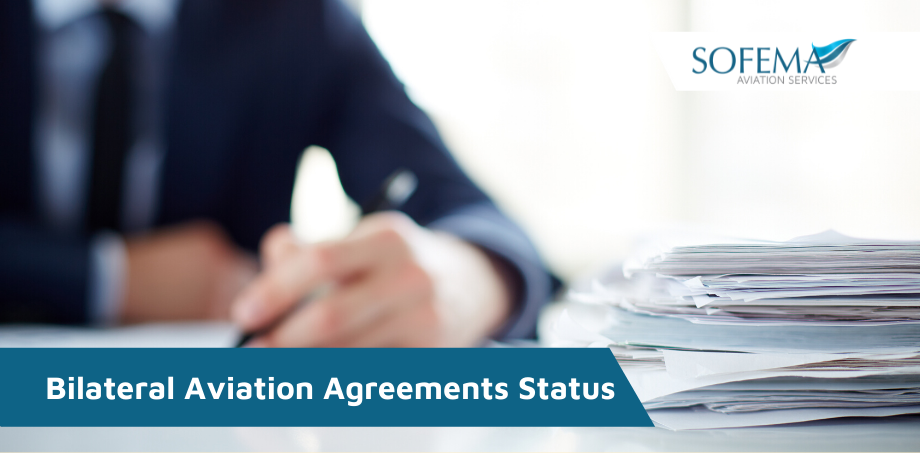Sofema Aviation Services (SAS) www.sassofia.com considers the current landscape of Bilateral Aviation Agreement (Bilateral Aviation Safety Agreement -BASA) between EASA, FAA & UK CAA.
Introduction – EU / UK
The EU-UK Trade and Cooperation Agreement concluded between the EU and the UK sets out preferential arrangements in areas such as trade in goods and in services, digital trade, intellectual property, public procurement, aviation and road transport, energy, fisheries, social security coordination, law enforcement, and judicial cooperation in criminal matters, thematic cooperation and participation in Union programmes.
The Trade and Cooperation Agreement (TCA) provides a solid basis for preserving our longstanding friendship and cooperation. The TCA was signed on 30 December 2020 & applied provisionally as of 1 January 2021 and entered into force on 1 May 2021.
Note – The EU-UK Trade and Cooperation Agreement, including its aviation safety part, does not apply to the EFTA States (Norway, Iceland, Switzerland and Liechtenstein).
- Those States may however conclude corresponding agreements on aviation safety with the UK. Pending the conclusion of such agreements.
Introduction EASA & FAA Bilateral
On 1 May 2011 entered into force the Agreement between the USA and the EU on cooperation in the regulation of civil aviation safety.
Article 12 of the EU-US BASA defines that the Agreement applies to “[…] the United States civil aviation regulatory system as applied in the territory of the United States of America, and on the other hand, to the European Community civil aviation regulatory system as applied in the territories in which the Treaty establishing the European Community is applied.
EASA / FAA Developments – Validation Improvement
EASA and the FAA have developed a Validation Improvement Roadmap (VIR), with the goal of implementing a risk based approach for the acceptance of certificating authority (CA) approvals and findings of compliance without any further technical review by the validating authority (VA) within the scope of the existing European Union (EU)/United States (U.S.) Bilateral Aviation Safety Agreement (BASA).
Terminology
Validating Authority (VA)
Certificating Authority (CA)
- The VIR (which will be reviewed and updated annually or as needed), identifies initiatives to incorporate new avenues for acceptance or validation between the FAA and EASA, which in turn, will be integrated into the Technical Implementation Procedures (TIP). The three avenues for approval include:
o Acceptance of Certificates and Approvals – An approval by the CA constitutes a valid approval in the VA’s system without any technical involvement or approval by the VA.
o Streamlined Validation of Certificates and Approvals – An approval by the CA leads to an approval being issued by the VA without any technical involvement by the VA.
o Validation Work-Plan – Level of involvement by the VA is established based on risk based principles rather than a comprehensive review of compliance findings made by the CA.
UK CAA – FAA Bi lateral Agreement Status
Next Steps
Follow this link to our Library to find & Download related documents for Free.
Sofema Aviation Services (SAS) & Sofema Online (SOL) provide Classroom, Webinar, and Online Training Courses. For additional details visit our websites www.sassofia.com and www.sofemaonline.com or email team@sassofia.com
Tags:
aviation, CAA, EASA, Airworthiness, FAA, Certificate, SAS blogs, BASA, UK CAA, Bilateral Aviation Agreement, Trade and Cooperation Agreement, EFTA







